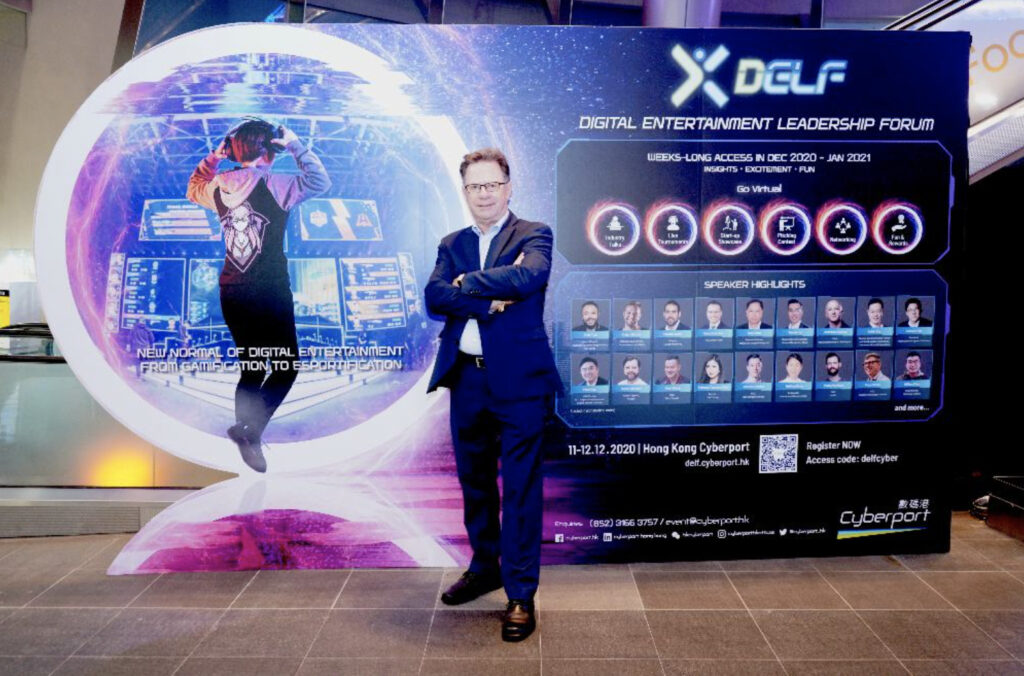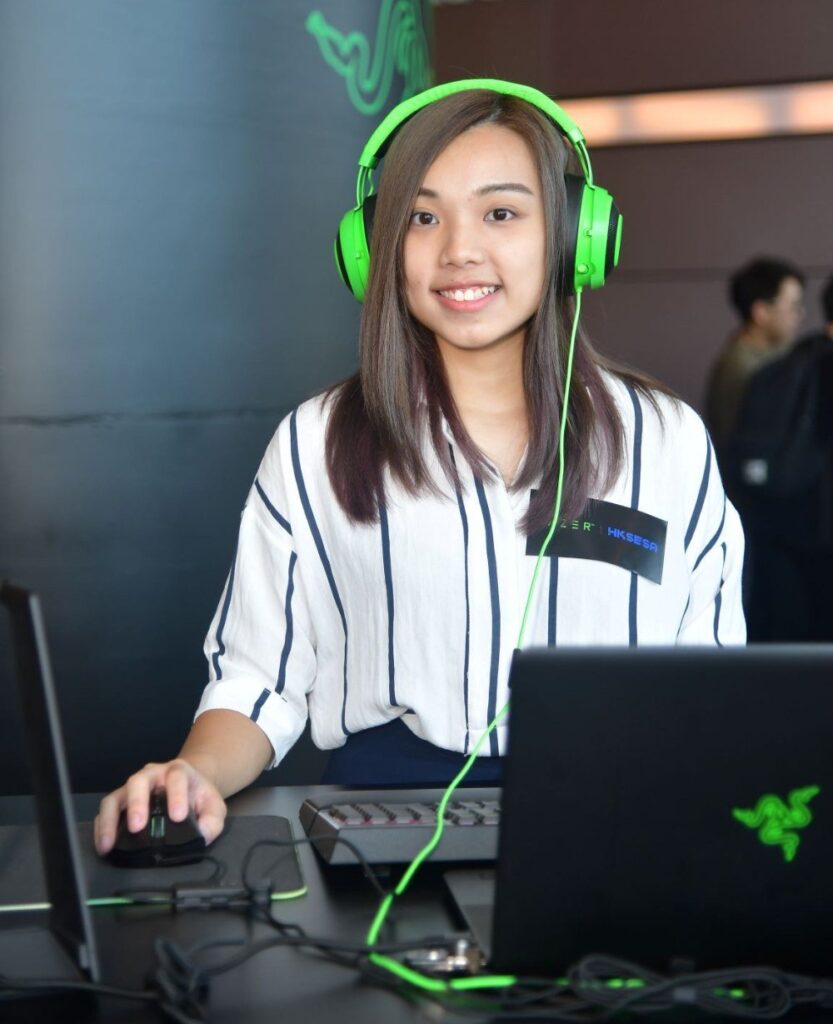Written by Reethu Ravi
Original post on JUMPSTART
With the global esports market valued at US$1.1 billion in 2019 and expected to grow to US$6.81 billion by 2027, esports is beginning to offer serious potential as a career option for young gamers.
Market growth has received a jolt from the increasing popularity of video games, awareness around esports, audience reach, engagement activities, and mobile usage in emerging countries. Technological infrastructure for league tournaments has also improved. Furthermore, esports also experienced a triumphant rise in viewership and audience engagement amid the pandemic.
Amid this shift, universities and colleges are beginning to offer esports programs and fellowships to turn out skilled professional gamers. In the U.S., several universities are offering esports degree courses, and over 100 high schools have started esports programs.
Meanwhile, offering students a curriculum that goes beyond the technical know-how, the Association of Pacific Rim Universities (APRU), a network of leading universities linking the Americas, Asia, and Australasia, launched the first and largest global inter-university Esports Fellowship Program on December 12.
With a vocational scope beyond just the gaming, the program will expose students to a wide range of possibilities in terms of career and employment in esports, according to APRU Secretary-General Christopher Tremewan.
Speaking to Jumpstart, Tremewan adds that along with the technical aspects of the industry, the program will also provide “exposure to some of the issues that are not normally dealt with, within the more technical side or the player side.”
Meanwhile, the research side will explore the psychological impact of gaming and esports and ways to make it “a more healthy industry with elevated ethics on diversity, inclusion, and dealing with the issue of addiction.”

At the end of the year-long program, each student will also have to come up with an original project. Unlike a typical undergraduate program, the APRU fellowship is “an establishment of an international community of professionals who are concerned with the broader shaping of the industry in the future,” adds Tremewan.
“I think the fellowship is a way of starting to provide leadership and the students themselves are already providing leadership in their own settings. But how can institutions then pick up this wonderful leadership and elevate it or give it more influence internationally? And that’s what we’re trying to do,” he says.
How universities can help make the esports industry more stable
Akin to how industries and new technologies go through a hype cycle, followed by downturns and eventual stability, esports is currently at the top of the hype cycle, explains Tremewan. He notes that “there’s a lot of investment going in, but not a lot of profit being made.”
However, the industry is growing, he adds. “It’s a medium shaping the way we interact socially, especially the current generation. So, it’s here to stay, but has a means to become a more stable industry.”
And universities and colleges can go a long way in achieving this. One way, Tremewan says, is by shaping the future of esports through research.
“Looking ahead 10 years – and you can only do that through research – looking at the ways in which we can deal with some of the negative side, but also the positive side. For example, researching what happens to the brain when you’re playing these team sports at a high level and making decisions that split second as a team,” he explains.
In addition to this, business schools are engaged with the business aspects of the industry and how to make it more sustainable, and there are students looking at the therapeutic benefits of gaming. For instance, there’s a lab at UC San Diego that is engaging with autistic people making their own games and looking at how this helps them, Tremewan says.
Furthermore, there are simulation games which look at global issues and ways to solve them.
“As 5G and more virtual reality comes into the picture, the technical aspects of the game will also change radically,” he adds.
Stressing the importance of shaping the industry positively, Tremewan says, “We need to be in on the ground floors, in research institutions [and] educational institutions, making sense of this, and making sure that we shape it in a positive way that contributes to society.”
Not enough universities are providing esports programs
According to Tremewan, a third of the world’s population are watching or playing some form of online game. While most universities are finding out that their students are fully engaged in gaming, not enough universities are “influenced by this new environment into responding.”
Echoing this, Gabriella Leung, co-founder of Hong Kong Student Esports Association (HKSESA), says that there are not many esports programs available in Hong Kong currently. The ones that exist are mostly facilitated by private companies. Leung is enthused about the idea of universities providing a different kind of support.
“That will be very great, because they will do some research, and they’ll have some academic support for it,” she says.

Many universities in the Asia-Pacific region are taking up the opportunity, including Yonsei University in Seoul, which has an esports department. While some universities have research groups, others have started to put in place ecosystems that provide academic pathways in esports from high school to tertiary education.
There also diversity courses and projects involving women students, because research suggested that young women who play sports are more likely to study medicine. So universities are exploring programs like the APRU fellowship which can help the students move into another phase of their careers.
Tackling the misconceptions surrounding esports
Tremewan says that while there are several misconceptions about the esports industry, there is also a “real negative side to the industry.” So the key, he says, is to make it clear what the benefits to the society are and to play an active role in dealing with the negative aspects early on.
Taking the example of Facebook, which began in universities, Tremewan says that universities ignored what was happening in their own institutions, and lost out on opportunities to shape and cultivate the social phenomenon Facebook has created. So, rather than waiting until esports has positive and negative effects, as in the case with Facebook, Tremewan suggests that universities need to “recognize it as a huge area of social interaction that we can turn to the benefit of society – economic productivity, education, research, and so on.”
According to Leung, one of the major challenges that gamers in Hong Kong face is the public perception towards esports.
“In Hong Kong, especially for parents and schools, they usually think gaming equals to poor academic performance. And they also think that gaming is very unhealthy – that if we’re promoting esports, we are promoting video game addiction,” she says.
Additionally, Leung says that Asian parents, for whom earning is important, don’t believe that students can earn money through the esports industry.
Leung believes that esports fellowship programs can help change the public’s perception towards this space. Echoing this, Tremewan says that universities engaging with new professional disciplines tends to advance learning and enhance the reputations of such activities.
“For example, if we had any university esports league, it would have very clear ethical standards instead of leaving it just to the publishers of the industry,” he explains.
Compared to traditional sports fellowships, Tremewan says that esports fellowships “are not trying to incentivize top players to come into the university and win games for the university.” Instead, the fellowship plans to take an active role in facilitating employment and “[shaping esports’] future in a responsible way.”
Challenges in Hong Kong
In addition to issues of public perception, gamers in Hong Kong also struggle with the dearth of professional teams in the city. Opportunities are thin on the ground for local gamers to get involved. Leung adds that universities and high schools haven’t introduced esports programs or scholarships. For gamers who want to be an organizer or a caster (a play by play announcer) there are not many ways to learn the techniques.
“[There is] basically no education program for this. So, it is very difficult for them to get a job in the esports industry and get involved in that,” she says.
As a solution, Leung says that it is important for the government and the university to take the lead in educating the public.
“The fellowship program will be a good start. It will be better if there will be a degree program in esports in the universities of Hong Kong. I think the most important [part] is to educate them, and to tell them what esports truly is,” she says.
Furthermore, the networking opportunities that fellowships provide can help promote cross border learning.
“For any sports, it is always good to connect people from different countries, because we can improve ourselves [and] we can know what they’re doing in the industry,” she says, adding that for Hong Kong gamers, it will be beneficial to learn from countries like Taiwan or Korea.
The future
Tremewan says that once the presidents or vice chancellors of universities understand how they can play a role which benefits the university as well as society, “we can see some movement pretty rapidly.”
When universities start to engage with student gamers through education and research, and then engage with the industry and with government, the entire ecosystem will reap the benefits, he adds.
Tremewan says that he’s optimistic about Hong Kong, as the government is supportive of esports. In addition, it is also surrounded by countries which are deeply engaged in esports, such as South Korea.
“We’ve all been sidelined a little bit by the pandemic. But esports is one of the things that has been able to continue, because of the virtual nature,” Tremewan says. “But we’re pretty sure that things again are going to develop quite quickly and Hong Kong could be an important base for shaping a responsible industry internationally.”
Images courtesy of HKSESA and APRU
